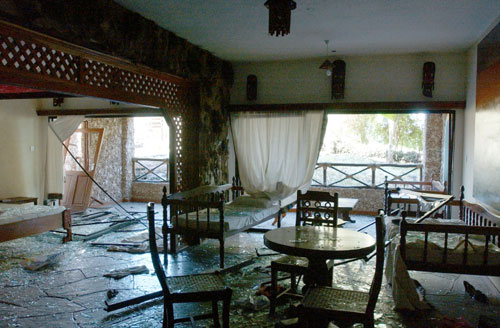Over the last couple of years terrorism has become a very real and serious matter for the hotel industry.
Newspaper headlines like this are very common: 2003 Marriott Hotel bombing Jakarta; 2005 Amman bomb attack; Grand Hyatt Hotel, the Radisson SAS Hotel, and the Days Inn; 2008 Kabul Serena Hotel attack; 2008 Mumbai Oberoi and Taj Hotel; attack on a seaside resort hotel in Tunisia 2015; militants took 170 hostages and killed 20 of them in a mass shooting in Bamako 2015. They seem to have become the new normal. How does this affect the hotel general managers in their job?
One could reason that even the most experienced and professional hotel general manager will not be able to stop terrorism. That is correct, but what he/she can do is to make sure that the hotel is secure (prepared). We know that most branded hotels do have policies and procedures like a crisis management manual, lock down scenarios or crises response policies. But what would unfold in your property if you (GM) would right at this moment greet a repeat guest in the lobby and you suddenly hear from the upper floor…POP…POP…followed by people screaming help, help and again, POP…POP then silence?
This sequence probably lasts only three seconds. What do you, your guests , security team and hotel staff do? The clock is ticking…valuable seconds pass…when will people swing into action? Then once again POP, POP, POP…more screaming. And now its 5,5 seconds since the first ringing of gun fire.
Think about your property and consider, what would people do in this situation? Lets see how this looks like if we see it from the perspective of two hotels – Hotel A and Hotel B.
Hotel A
If you are heading Hotel A, you are less fortunate because you will experience something like this:
- Nobody is prepared and people (staff and guests) go into hiding whilst intruders move from door to door and floor by floor trying to shoot people to ensure maximum carnage to guests and staff. Nobody can stop the militants and nobody knows how and where they are moving around.
- You as the hotel general manager and other senior staff try frantically to call the authorities for help. They arrive (sooner or later), evaluate the situation from a safe distance, and probably 20 hours later decide to storm the building and rescue all the remaining guests.
- The siege is over. Now all stakeholders and media lament about the huge loss of people’s lives and that the hotel was not prepared well enough for such a situation.
Hotel B
Hotel B is prepared, since the hotel general manager and his team did not only do their homework but also ensured that policies were in place, staff were kept updated on these policies and procedures to be followed in the event of a terror attack, and they had performed drills to ensure that the teams responded effectively.
The likely scenario of a hotel that is prepared for such an event could possibly go like this:
- One second after hearing the popping sound you (GM) call the control room (where security is observing the CCTV) to confirm with security the actual situation. Most likely the security staff can see the corridor/wing and confirm seeing militants with guns moving around (or not).
- You would connect with your head of security and agree that situation requires a red alert announcement (lockdown).
- The operator would be called to have him use the public announcement system to broadcast – Alert RED! This is Alert RED!
- Since you established a system that ensures that any guest is well acquainted about what steps to take during Red Alert (lock the door, move other heavy furniture to the door, switch your mobile to silent, take cover in a wardrobe or other place and paste the color indicator card at your window). Locking the room and barricading the door is a good measure to have more protection and it will slow attackers down as they have to use much more time and energy to break into each room.
- In parallel, your security (in case your hotel has armed security) will have moved to the corridor (identified over CCTV) and would have taken position at key points (e.g. lift landing and end of corridor – fire exit) to isolate the attackers in one wing (or floor) and keep them at bay till additional forces arrive (which your head of security has called in already).
- As part of your preparedness, you had (earlier) practiced lock downs with the authorities so you know that they will arrive within a couple of minutes, and that they know the building layout and can easily connect and collaborate with your staff (security). They will move in and join your security team and most likely neutralize the militants.
It would definitely be too naive to believe that the above scenario will take place exactly in that fashion, since terror attacks have become very sophisticated and complex, but it shows the importance of being prepared. In light of global terrorism and growing number of hotel attacks, I think it is good to reflect and take some time to check procedures and measures to be taken. Simply ask yourself, how would your team respond if the above were to take place in your hotel right now.
Looking at it from the angle of a statistician, one probably would say that chances of this happening to your hotel are very remote, as STR Global suggest that there are about 156.000 hotels worldwide. Subsequently, the likelihood that your hotel will be hit is only 0.030325%, but if you are in the lobby now and you hear POP, POP, will you hope to be prepared or will you curse the statistics?
























